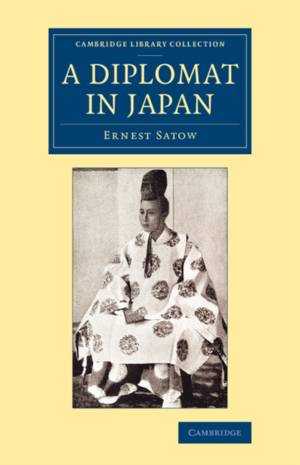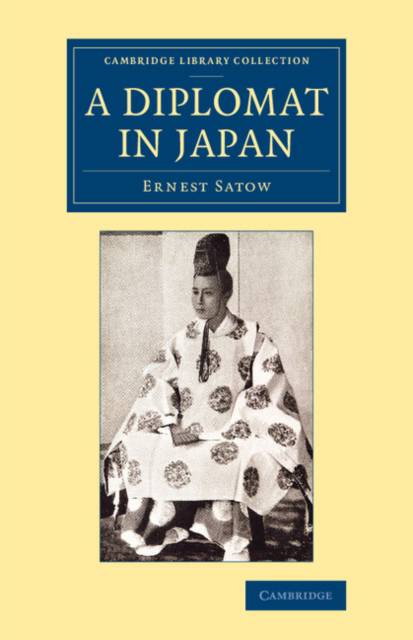
- Afhalen na 1 uur in een winkel met voorraad
- Gratis thuislevering in België vanaf € 30
- Ruim aanbod met 7 miljoen producten
- Afhalen na 1 uur in een winkel met voorraad
- Gratis thuislevering in België vanaf € 30
- Ruim aanbod met 7 miljoen producten
Zoeken
A Diplomat in Japan
The Inner History of the Critical Years in the Evolution of Japan When the Ports Were Opened and the Monarchy Restored
Ernest Satow
€ 82,45
+ 164 punten
Omschrijving
A brilliant linguist, Sir Ernest Satow (1843-1929) was recruited into the British consular service as a student interpreter in 1861. The following year he arrived in Japan, where he witnessed the overthrow of the Tokugawa Shogunate and the Meiji restoration of imperial rule. Drafted in the 1880s while he was consul-general in Bangkok, this 1921 account is based on the voluminous diaries Satow kept whilst in Japan between 1862 and 1869. As an interpreter he was present at many of the meetings between the diplomatic and military representatives of the Great Powers and of the Shogunate. Satow gives his opinions of the various officials he met, and describes the rising tensions that led to conflict between the Shogunate and the Emperor, civil war, and the reassertion of the Emperor's power. Satow's classic Guide to Diplomatic Practice (1917) is also reissued in the Cambridge Library Collection.
Specificaties
Betrokkenen
- Auteur(s):
- Uitgeverij:
Inhoud
- Aantal bladzijden:
- 442
- Taal:
- Engels
- Reeks:
Eigenschappen
- Productcode (EAN):
- 9781108080958
- Verschijningsdatum:
- 5/03/2015
- Uitvoering:
- Paperback
- Formaat:
- Trade paperback (VS)
- Afmetingen:
- 140 mm x 216 mm
- Gewicht:
- 557 g

Alleen bij Standaard Boekhandel
+ 164 punten op je klantenkaart van Standaard Boekhandel
Beoordelingen
We publiceren alleen reviews die voldoen aan de voorwaarden voor reviews. Bekijk onze voorwaarden voor reviews.











